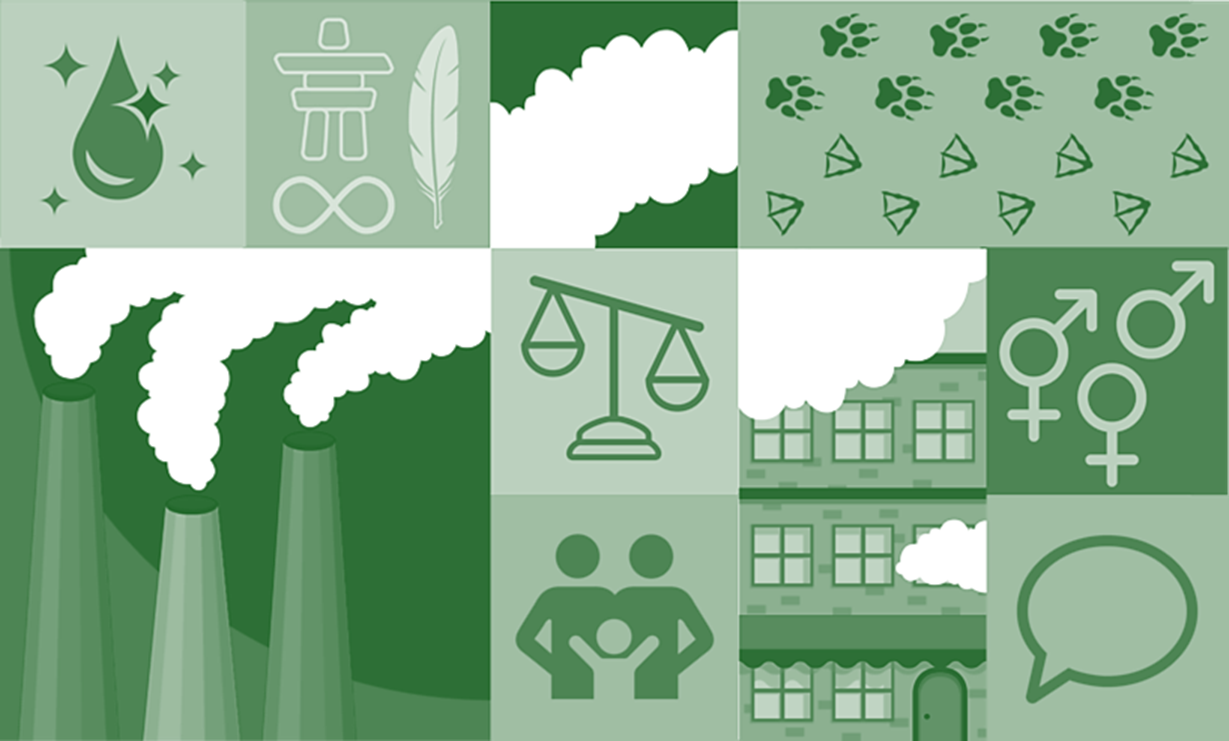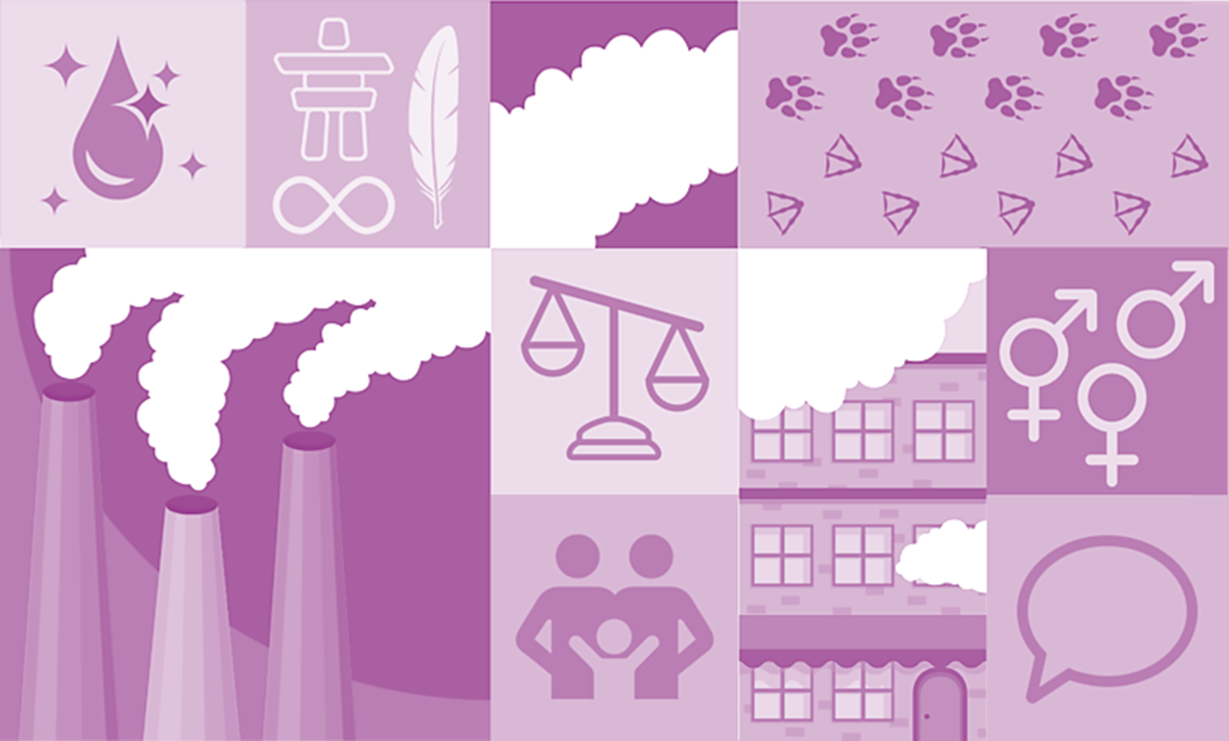Advancing Environmental Justice
About environmental justice and environmental racism
On June 20, 2024, Private Member's Bill C-226, National Strategy Respecting Environmental Racism and Environmental Justice Act became law. The Government of Canada recognizes the need to advance environmental justice across Canada. It is also important to continue to work toward eliminating racism and racial discrimination in all their forms and manifestations.
The Act reflects the Government's commitment to implement the United Nations Declaration on the Rights of Indigenous Peoples, which will be implemented in consultation and cooperation with Indigenous Peoples. To meet the obligations of the Act, the initial strategy must demonstrate an approach that is consistent with the Government of Canada's framework for the recognition and implementation of the rights of Indigenous peoples.
Understanding Environmental Justice and Environmental Racism
In Canada, there is no definition of environmental justice that is accepted by everyone. Instead, environmental justice is considered a concept that can be applied in various contexts. Environmental justice is a movement seeking to ensure fair and meaningful inclusion of affected peoples and equal sharing of benefits and costs when making decisions about the environment. Environmental justice aims to recognize and seek to address the existing inequalities faced by Indigenous, racialized, or otherwise marginalized communities throughout the decision-making process.
Like environmental justice, there is no definition of environmental racism accepted by everyone, and it has not yet been defined by the Government of Canada. It is a broad concept that can be applied in various contexts. Environmental racism is a form of systemic racism. When it comes to the environment, environmental racism occurs when environmental decision-making, policies, and practices overly disadvantage some people due to their race. This outcome can be intentional or unintentional.
For more information on how these concepts could be applied in Canada, review the webpages below:
Next steps
Through the Act, the Minister will develop, within two years of Bill C-226's coming into force, a national strategy to promote efforts across Canada to advance environmental justice and to assess, prevent, and address environmental racism. The strategy could include measures including possible amendments to federal laws, policies, and programs. The Minister will also report on progress every five years thereafter. Engagement opportunities will be available to all interested persons, bodies, organizations or communities in Canada. There will be a particular focus on communities that may be experiencing environmental injustice.
Get involved
To inform the development of the national strategy, Environment and Climate Change Canada (ECCC) is conducting a series of engagement activities. These activities represent a significant part of the policy development process, both in principle and in the specific context of the requirements of the National Strategy Respecting Environmental Racism and Environmental Justice Act. It is important to ensure that the intended purpose of the Strategy reflects the needs and perspectives of stakeholders and partners who may be affected. To achieve this, ECCC will engage with a broad audience during the next consultation phase of strategy development. The following documents include information and questions to prompt discussions about environmental justice.
What we heard reports
- Insights and perspectives: Canada’s Environmental Justice and Racism Symposium
- Indigenous Advisory and Monitoring Committee (IAMC): Trans-Mountain (TMX) Line Wide Gathering
Related links
- Private Member's Bill C-226 (44-1) - Royal Assent - National Strategy Respecting Environmental Racism and Environmental Justice Act - Parliament of Canada
- Government supports bill toward progress on environmental justice - Canada.ca
- Minister of Environment and Climate Change Mandate Letter
Contact us
Environmental Justice and Racism Team
Environment and Climate Change Canada
Zibi Building
125 Zaida Eddy Private
Ottawa, Ontario
K1R 0E3
Email: EJ-JE@ec.gc.ca




